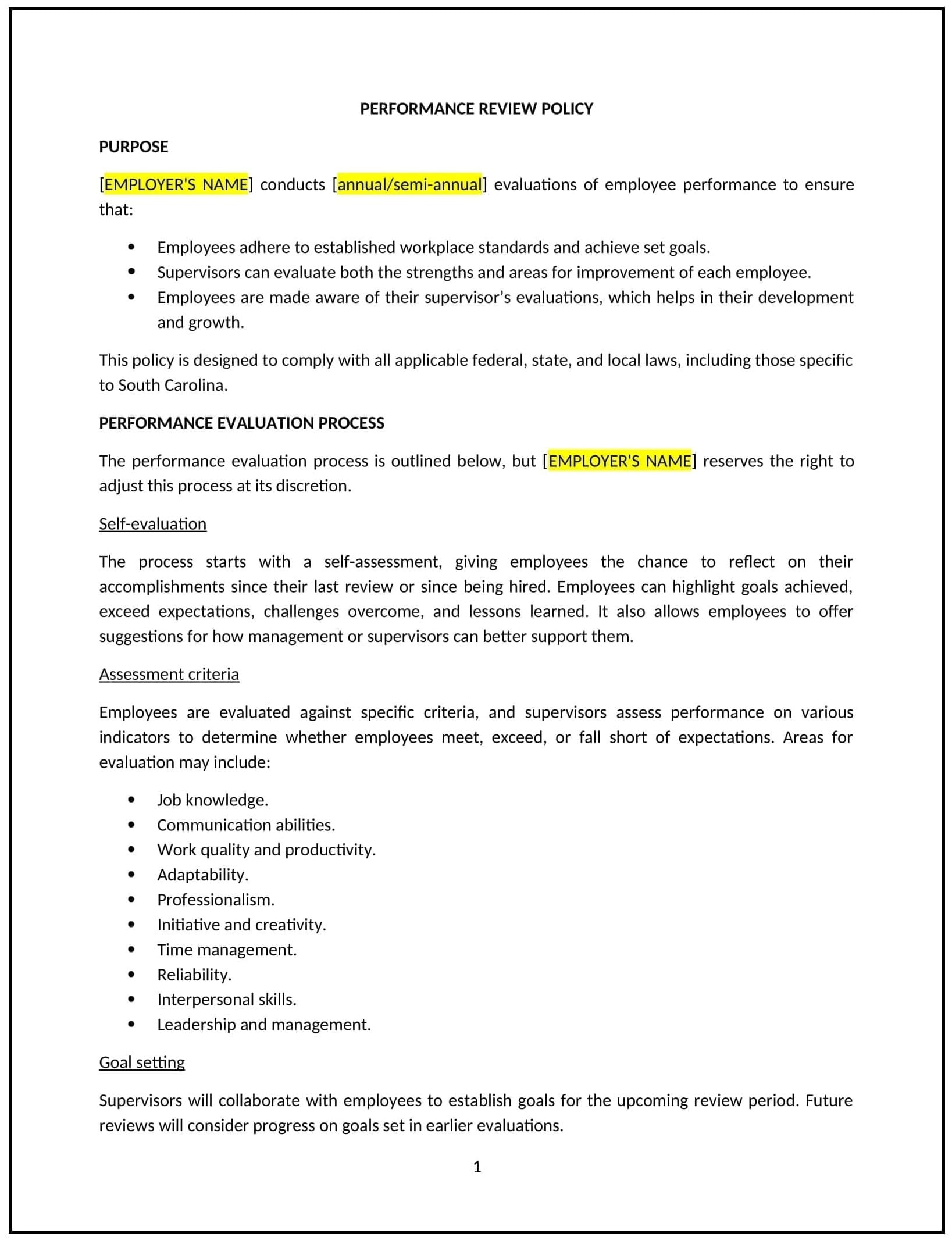Performance review policy (South Carolina): Free template
Got contracts to review? While you're here for policies, let Cobrief make contract review effortless—start your free review now.

Customize this template for free
Performance review policy (South Carolina)
This performance review policy is designed to help South Carolina businesses establish guidelines for evaluating employee performance in a fair and constructive manner. It outlines procedures for conducting regular reviews, setting performance goals, and providing feedback to support employee growth and development.
By adopting this policy, businesses can improve productivity, align employee performance with organizational goals, and foster a culture of continuous improvement.
How to use this performance review policy (South Carolina)
- Define performance review purpose: Explain the importance of performance reviews, such as identifying strengths, addressing areas for improvement, and setting future goals.
- Establish review frequency: Specify how often performance reviews will be conducted, such as annually, semi-annually, or quarterly.
- Set evaluation criteria: Outline the metrics and standards used to assess performance, such as job responsibilities, key performance indicators (KPIs), and behavioral competencies.
- Provide feedback guidelines: Emphasize the importance of constructive, specific, and actionable feedback during reviews.
- Address goal setting: Include procedures for setting performance goals and development plans to help employees grow in their roles.
- Train managers: Educate supervisors on conducting fair and effective performance reviews.
- Review and update: Assess the policy annually to ensure it aligns with evolving business needs and performance standards.
Benefits of using this performance review policy (South Carolina)
This policy offers several advantages for South Carolina businesses:
- Improves productivity: Helps employees understand expectations and focus on high-priority tasks.
- Aligns performance with goals: Ensures employee efforts contribute to the organization’s overall objectives.
- Supports employee growth: Provides feedback and development opportunities to help employees advance in their careers.
- Enhances communication: Encourages open dialogue between employees and managers about performance and expectations.
- Reduces turnover: Builds employee engagement and satisfaction by recognizing achievements and addressing concerns.
Tips for using this performance review policy (South Carolina)
- Communicate the policy: Share the policy with employees and include it in the employee handbook.
- Provide training: Educate managers on conducting fair and effective performance reviews.
- Monitor adherence: Regularly review performance review processes to ensure compliance with the policy.
- Address issues promptly: Take corrective action if performance reviews are inconsistent or biased.
- Update regularly: Assess the policy annually to ensure it aligns with evolving business needs and performance standards.